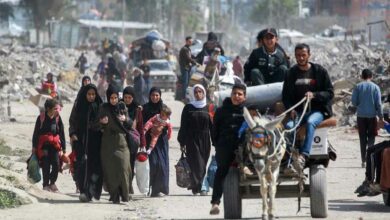WHO South-East Asia Region adopted this to tackle the growing diabetes burden
The ‘Colombo Call to Action’ was endorsed by health professionals and authorities to improve diabetes preventive and control efforts in the World Health Organization’s (WHO) South-East Asia Region in response to the rising prevalence of diabetes.

As the main tenets of WHO’s Global Diabetes Compact, which aims to lower the risk of diabetes and guarantee that those who are diagnosed with the disease have access to high-quality treatment and care, the Call to Action highlights the collective commitments and catalytic actions made by member nations to accelerate efforts to unite, integrate, innovate, treat, track, and educate.
According to the press release, the Compact also promotes preventing type 2 diabetes caused by obesity, poor nutrition, and sedentary lifestyles.
In the area, diabetes causes more than 4,82,000 deaths annually. People with diabetes, their families, health systems, and national economies all suffer greatly from diabetes and its consequences, which include blindness, renal failure, heart attacks, strokes, and lower limb amputation.
“It can save lives to close the service gaps and provide prompt access to diabetes treatment. ‘Breaking Barriers, Bridging Gaps’ is the subject of the two-day Regional Commemoration of World Diabetes Day 2024, where Saima Wazed, Regional Director, WHO South-East Asia, spoke. “Care services need to be equitable, comprehensive, accessible, and affordable,” she stated.
The Colombo Call to Action was adopted at the event, which was organized jointly by the Ministry of Health, Government of Sri Lanka, and WHO on November 21 and 22. The press release states that more than 100 experts and officials attended, including representatives from Ministries of Health across the WHO South-East Asia, Western Pacific, and Africa Regions, as well as academic institutions, professional bodies, international experts, UN agencies, and development partners.
“We, the Sri Lankan government, are dedicated to combating non-communicable illnesses like diabetes. Through programs like SEAHEARTS and collaborations with several groups, we have already taken action. At the concluding session, Hansaka Wijemuni, Deputy Minister of Health and Media, Government of Sri Lanka, said, “We know we can do more through advocacy, health promotion, and continuous supply of quality medicines, as well as providing universal access to investigations and treatment.”
“The number of people with diabetes has quadrupled over the last three decades, now surpassing 800 million worldwide,” WHO Director-General Tedros Adhanom Ghebreyesus said in a video greeting to the audience. Over 50% of these people don’t get any therapy. The press statement said that in order to fulfill global objectives and guarantee improved diabetes prevention, diagnosis, and treatment, we must step up our efforts.
Priority activities are outlined in the Call to Action, including bolstering primary healthcare systems to increase diabetes prevention and management, expanding access to necessary medications and diagnostics, especially insulins, and incorporating diabetes care into larger health initiatives. Additionally, it highlights the need of funding policies and initiatives that support healthy lifestyle choices and set national goals for diabetes coverage by 2030.
Significant strides have been achieved in the provision of diabetes management services by nations in the WHO South-East Asia Region. With a goal of 100 million by 2025, more over 60 million individuals were on protocol-based care for hypertension and diabetes as of June 2024.
Nevertheless, difficulties still exist in spite of attempts. Access to insulin and monitoring for almost 2,60,000 children and adolescents with type 1 diabetes is restricted. Additionally, type 2 diabetes is becoming more common among the region’s youth.
Meeting the increasing demand for diabetes prevention and care requires primary healthcare to be stocked with vital medications, established treatment procedures, high-quality tests, and qualified personnel.
“Overcoming barriers and care gaps is a long and difficult but achievable path,” said the Regional Director.
Governments, healthcare organizations, and communities all have a role to play in preventing diabetes and helping those who already have it live longer, healthier, and more productive lives. Together, let’s make sure that no one is left behind and that everyone has access to high-quality, reasonably priced diabetic treatment,” the press release said.
Alaka Singh, WHO Representative to Sri Lanka; Guy Fones, Director of Non-Communicable Diseases, WHO Headquarters; and PG Mahipala, Secretary of Health, Government of Sri Lanka, also spoke at the regional remembrance.





